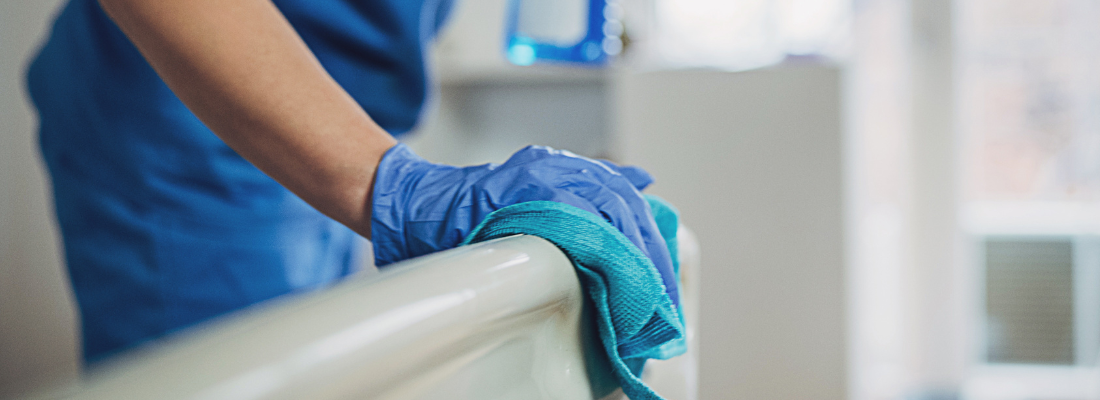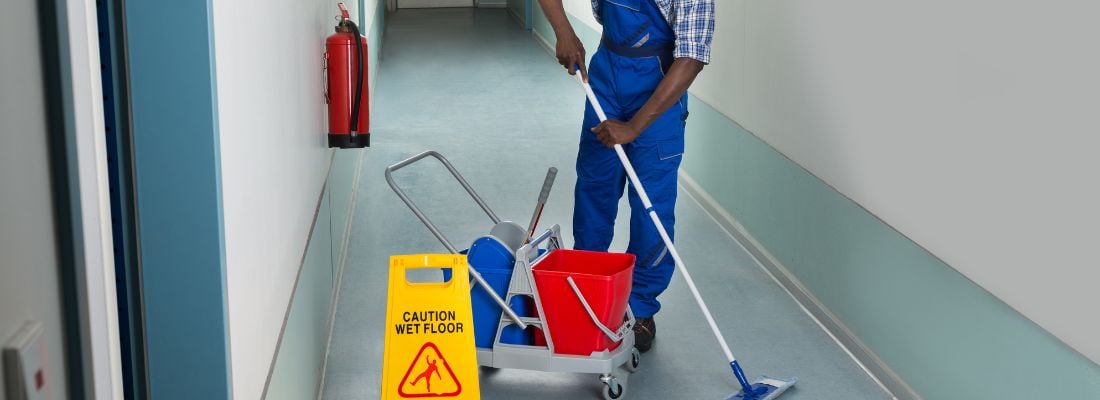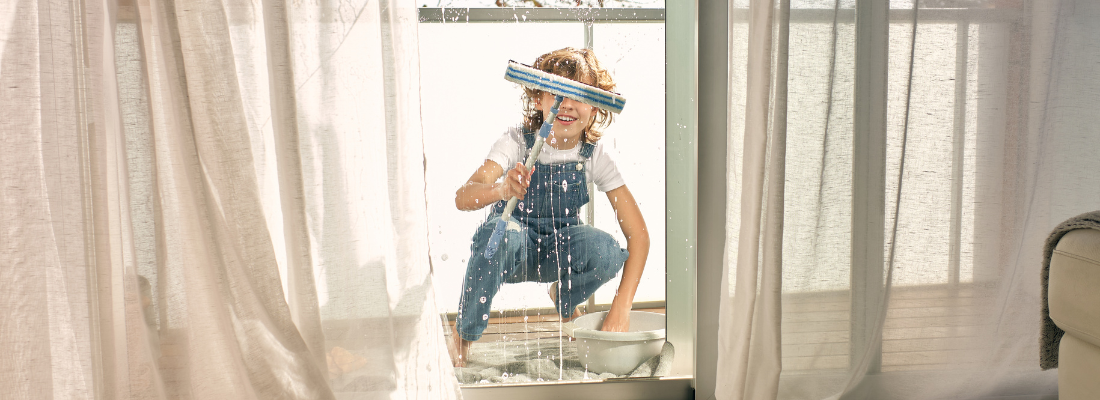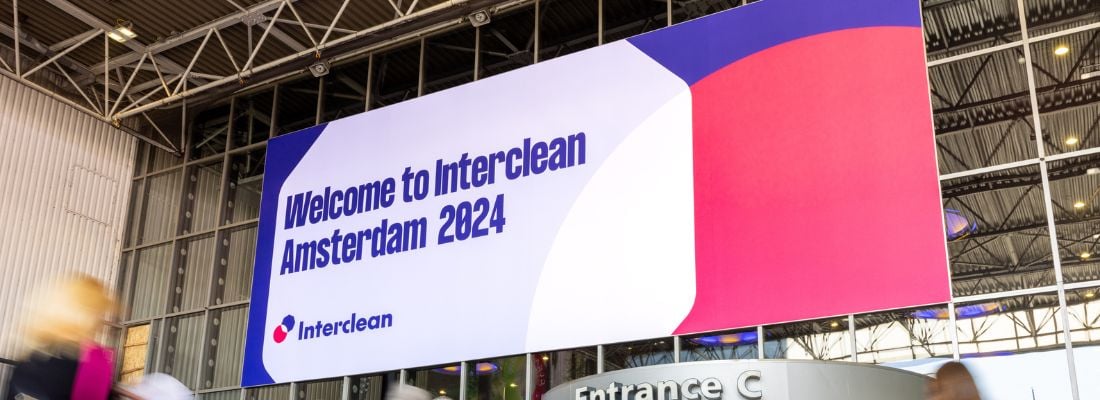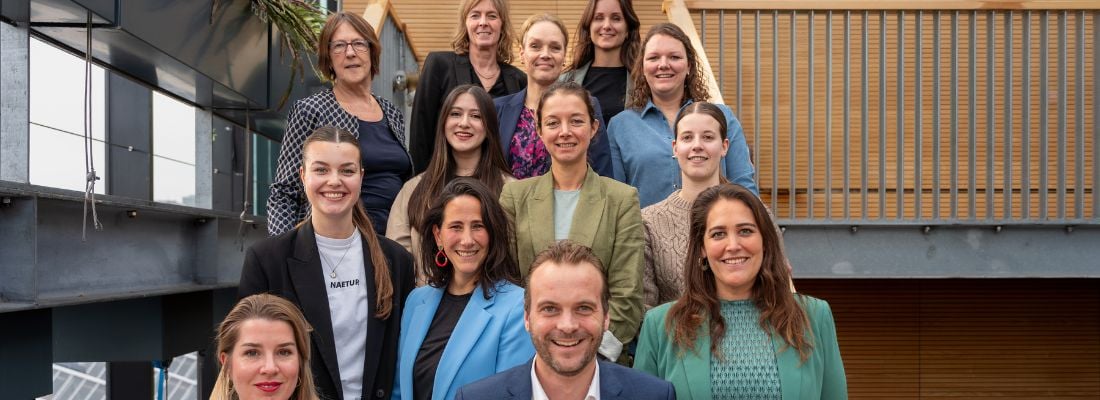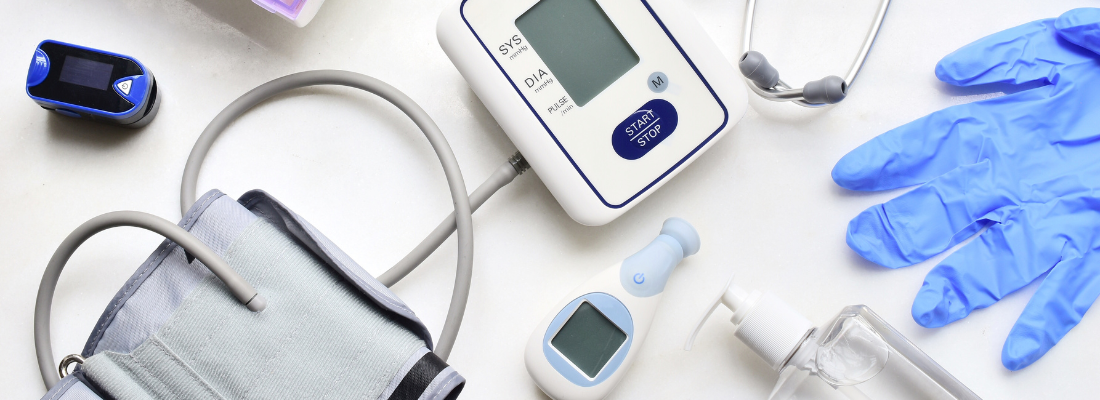Loading component...
Going green in healthcare cleaning: hygiene & sustainability
Hospitals face a tough task: keeping their environment clean to stop infections from spreading, all while protecting the environment. Traditional cleaning methods often use harsh chemicals and disposable products, creating a big burden on the planet. But there's a new trend emerging – sustainable healthcare cleaning – that offers a greener future for healthcare without sacrificing patient safety.
Working together for a cleaner future
Making sustainable cleaning work in healthcare requires everyone to pitch in. Exciting events like the upcoming Healthcare Cleaning Forum (HCF) offer a platform to discuss the challenges of hospital-acquired infections (HAIs) and showcase the latest advancements in healthcare cleaning.
Did you know that the HCF takes place on 16 May 2024 alongside this year’s Interclean Amsterdam show?
FIND OUT MORE ABOUT THE HCF
Benefits beyond green: the experts’ view
In the run up to the HCF we caught up with Tobias Dreier, Managing Director of IGEFA ProMedical GmbH in Germany (a leading German wholesaler for the professional cleaning industry). Tobias explains why sustainable cleaning isn't just good for the environment. It can also lead to better patient outcomes, cost savings, and improved overall quality of healthcare. He emphasises the importance of teamwork between doctors, cleaners, hospital managers, and cleaning product companies. The HCF plays a key role in bringing everyone together.
We also got some very valuable input from Lisa Sligting Sustainability Manager at NVZ in the Netherlands.
We think communication in the supply chain is one of the key elements for a successful implementation of more sustainable solutions, that take the environmental impact as well as a sound level of hygiene into account. We think the HCF provides an excellent opportunity to have the desired discussions around this topic,
maintains Lisa.
Green Cleaning Products: a shift towards more sustainable solutions
One of the cornerstones of sustainable healthcare cleaning is the move towards more sustainable cleaning products. These products, also known as green cleaning products, are going one step further than traditional products when it comes to sustainability. To determine which products are more sustainable, one should consider the entire life cycle. Some of the relevant aspects:
- The origin of the ingredients: renewable or fossil.
- Energy consumption and CO2 emissions from the required transport of a substance or product.
- The extent to which renewable raw materials can be sustainably grown.
- The purpose and efficacy of the product.
For example, a product may consist entirely of biodegradable raw materials from renewable origin, but may not be sufficiently effective to actually bring added value. Or substances from fossil sources are used, but those substances allow washing at lower temperatures. The degree of sustainability of the product can only be properly assessed when looking at the entire life cycle.
Although natural or ecological products are often associated with safety, this is not always the case. It is believed that these substances are healthier, but the reality is: whether a substance is man-made (synthetic), imitated from nature or taken directly from nature, it says nothing about the level of safety. All cleaning products and disinfectants placed on the European market must comply with the same strict legislation that guarantees a very high level of safety. For disinfectants, there is an additional legal authorisation system that checks whether they are safe and effective before these products can be put on the market.
To find greener cleaning products ecolabels can be of help. Widely recognised labels for cleaning products include the EU Ecolabel, the Nordic Swan label and the Charter for Sustainable Cleaning.
Microfibre revolution: less waste, more reusability
Another key part of sustainable healthcare cleaning is using microfibre cloths and mops. Microfibre is a special type of fabric with fibres ten times thinner than human hair. This allows them to trap dust, dirt, and germs more effectively than regular cleaning cloths, often without needing harsh chemicals. Microfibre cloths are also very absorbent, so they use less water compared to traditional methods.
The biggest benefit of microfibre is that you can reuse them hundreds of times! This significantly reduces waste compared to disposable wipes and paper towels. However, it's important to wash microfibre cloths properly. Hot water and special microfibre detergents ensure optimal cleaning and prevent bacteria growth in the fibres.
“The reuse of materials and raw materials is also an important part of a more sustainable world. Therefore, manufacturers of detergents and disinfectants focus on improving this circularity whenever possible, without losing sight of the importance of hygiene. The reuse and recycling of plastic packaging is a good example of this,” explains Lisa.
Real-world examples: sustainability in action
Here are a few examples of how hospitals are successfully implementing sustainable cleaning practices:
- Seattle Children's Hospital: switched to non-toxic products and microfibre cloths, reducing chemical waste by 30% and disposable paper towel use. Patients and staff reported improved air quality and satisfaction.
- Mayo Clinic: partnered with suppliers to develop custom green cleaning solutions, reducing water use by 20% and saving money.
- University Medical Centre Utrecht (UMCU): trained their staff on eco-friendly practices and used colour-coded microfibre cloths to prevent cross-contamination. This lowered waste management costs and improved patient satisfaction scores.
These examples show the significant benefits of sustainable cleaning in healthcare facilities. By using green cleaning products and reusable microfibre systems, hospitals can contribute to a healthier environment, save money, and improve indoor air quality for everyone.
Balancing costs and sustainability
It's important to strike a balance between cost-effective cleaning and maintaining quality care. Tobias points out that focusing solely on product cost can be a problem. He emphasises the need to consider sustainability when making decisions.
The HCF is a great platform to discover how to balance cost-effectiveness with responsible sustainability in healthcare cleaning.
Beyond products and systems: expanding sustainability
Green cleaning products and microfibre cloths are a big part of sustainable cleaning, but there's more to it. Here are some additional strategies hospitals can implement:
- High-efficiency equipment: Using energy and water-saving vacuum cleaners, floor scrubbers, and laundry machines.
- Waste management: Recycling cardboard, paper, and plastic bottles used in cleaning.
- Sustainable procurement: Choosing cleaning products and equipment with recycled content or from companies with sustainable practices.
- Education and training: Teaching staff about the importance of sustainable cleaning and how to properly use green products and microfibre systems.
Tobias highlights promising new industry developments: "Digitalisation and robotics offer exciting possibilities. Digitalisation allows for more efficient planning and scheduling, and robots can handle tasks like cleaning hallways, freeing up staff for more specialised tasks,” he explains.
Conclusion: a sustainable future for healthcare cleaning
Sustainable cleaning practices are no longer a new idea, but a necessary change for hospitals. By using green products, microfibre cloths, and a holistic approach to cleaning, hospitals can create a healthier environment for everyone while protecting the planet. As technology and awareness around sustainability continue to grow, we can expect even more innovative cleaning solutions to emerge, solidifying the link between a clean and healthy environment within hospitals and a healthier planet for all.
We can’t wait to see you at Interclean Amsterdam 2024, where the world’s lastest sustainable cleaning and hygiene innovations will be on show!
FIND OUT MORE ABOUT INTERCLEAN AMSTERDAM
Join us on 16 May 2024 at the Healthcare Cleaning Forum (HCF): a unique 1-day conference dedicated to advancing the crucial field of healthcare environmental hygiene. This specialised event focuses on environmental cleaning, disinfection, patient safety, and infection prevention and control.
View the HCF PROGRAMME and SPEAKERS

